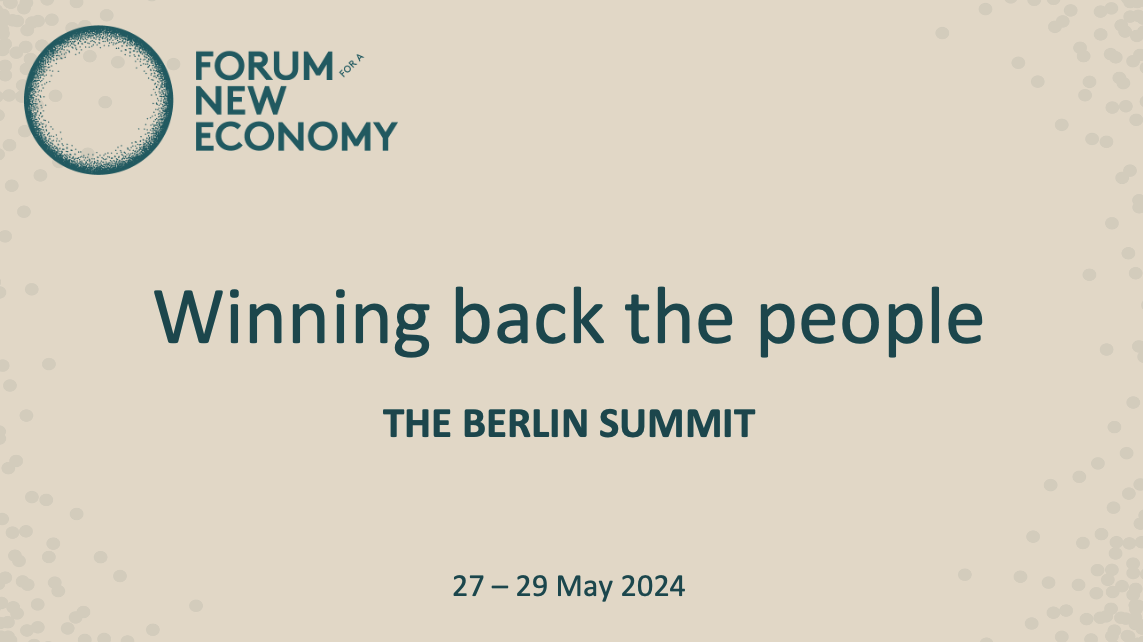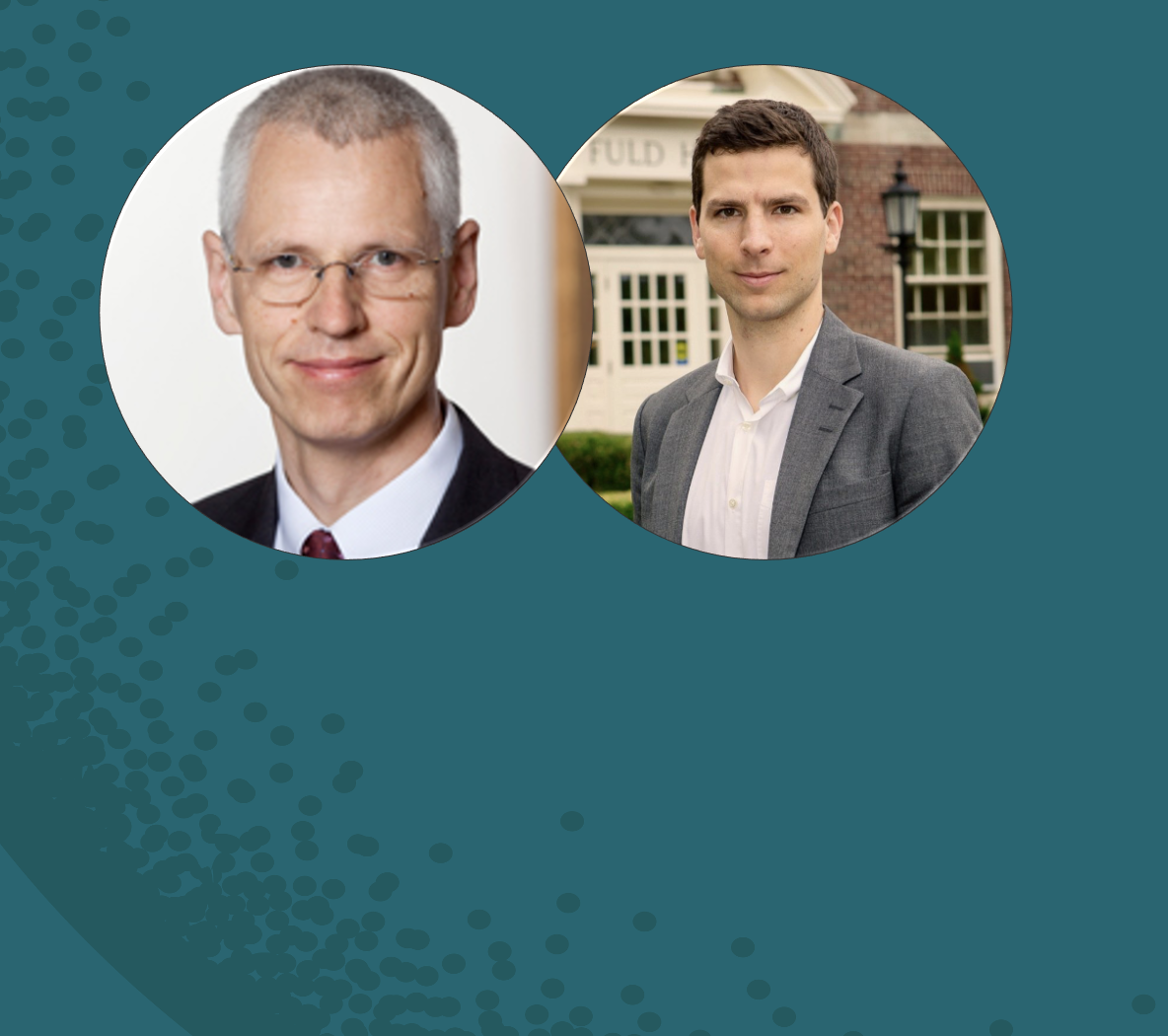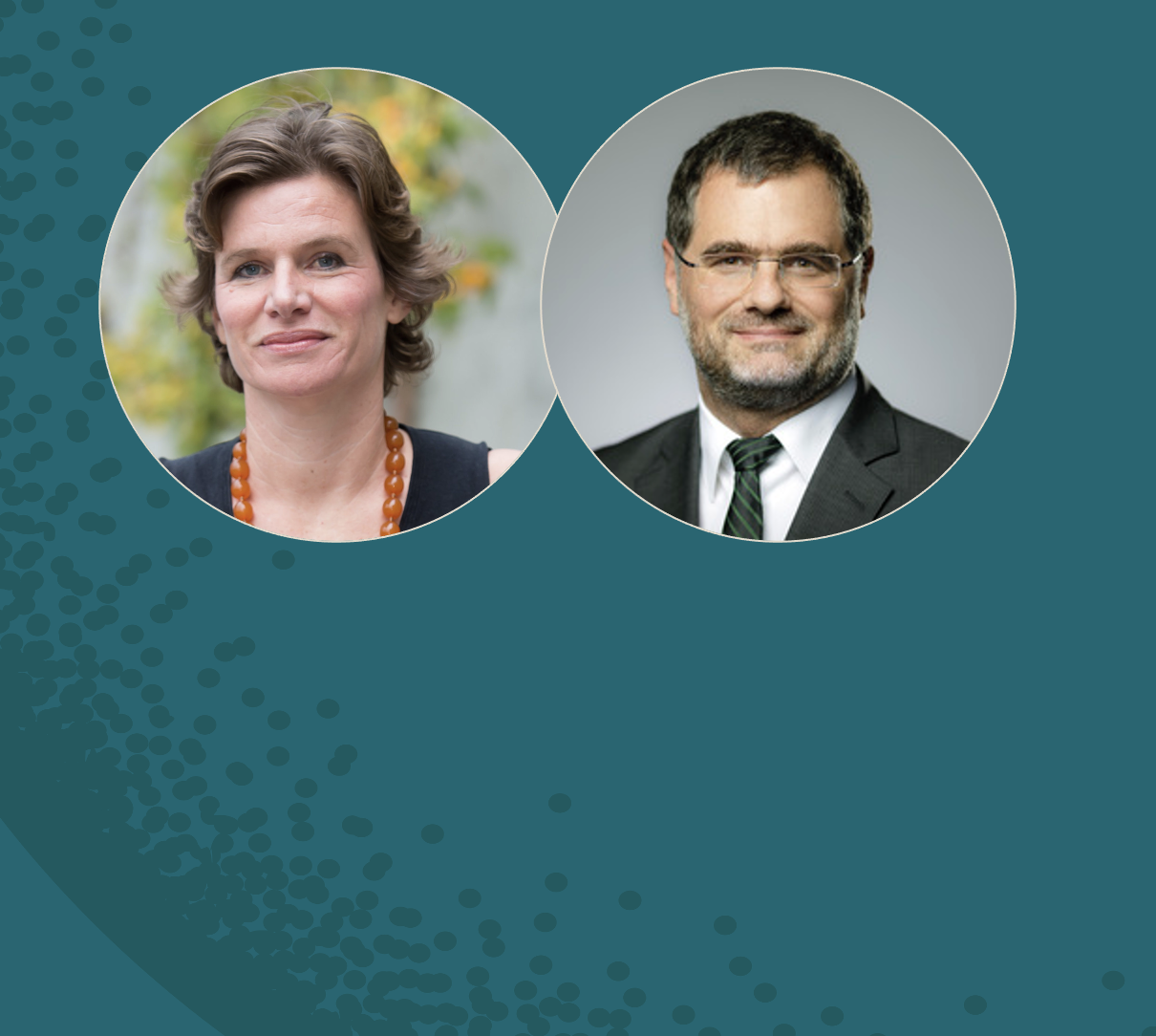Our Events
We host workshops, seminars and expert meetings to promote exchange and discussion about the great challenges of our time. An overview of past events and what's to come.
UPCOMING EVENTS
PAST EVENTS
IX New Paradigm Workshop - A new economy, where are we?
Cornwall Consensus, Bidenomics, established economists calling for a new social contract - many things point to a change of course. But where do we really stand in the fall of 2021? This is the leading question of our IX New Paradigm Workshop.
Book presentation: How companies can deliver both purpose and profit
Alex Edmans, finance professor at LBS, argues that companies should be run with the primary purpose of creating value for society (and profits secondary) and provides evidence that this is more profitable in the long run. Jointly with ESMT Berlin, we have invited him to present his 2020 book and to discuss how companies can best serve society.
Symposium: Prosperity in the 21st Century
In the pandemic, doubt has grown that the way we do business and deal with risks is sustainable. Corona is a wake-up call and catalyst for a restructuring of the global and German economic model. But what does that mean? What could a different way of doing business look like?













